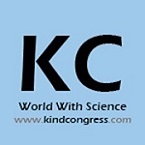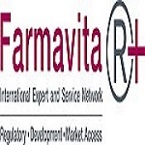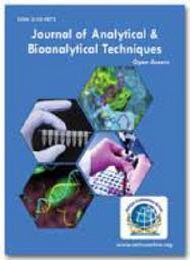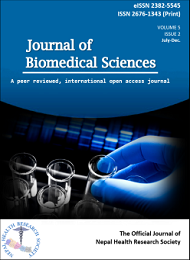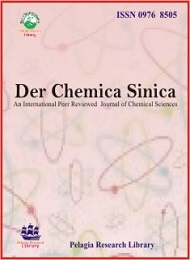Theme: “Tracing Toxicology Advancements for Better Lifeâ€
Euro Toxicology 2023
Euro Toxicology 2023 Organizing committee invites analytical expertise, researchers, professors, scientific communities, delegates, students, business professionals and executives to attend the “24rd European Toxicology and Applied Pharmacology” which is to be held during February 15-16, 2023 at London, UK.
Euro Toxicology 2023 is a global overview which will provide an international platform for the discussion of Toxicology and Applied Pharmacology. This event gathers all the eminent persons, professors, scientists, doctors, medical practitioners, health workers, professionals, students, and industrialists all over the world to exchange their ideas, researches and their experiences. It also brings together persons particularly interested in the chemistry of Toxicology and Applied Pharmacology, both Toxicological, Medical and Clinical; to Poster programs of general papers and symposia on special topics dealing with this field of Toxicology and Pharmacology; to promote such other activities as will stimulate activity in and emphasize the importance of research in Toxicology and Applied pharmacology. Our conference provides quality, timely Symposium at "24th European Toxicology and Applied Pharmacology".The conference works under the theme “Tracing Toxicology Advancements for Better Life” It chiefly centre about the slanting innovations and improvement in the territory of Euro Toxicology 2023.
Why to attend?
Euro Toxicology 2023 event shall lay a platform for the interaction between specialists around the world and aims to accelerate scientific discoveries creating the conference an ideal platform to share expertise, foster collaborations across trade and world, and assess rising technologies across the world.
Researchers across the world are going to showcase their research work at this platform, wherein the students are going to learn innovative techniques from them. Moreover this platform provides a scope to share each other knowledge and execute it for the betterment of the in the near future. A novel chance for advertisers and sponsors at this International event.
Track 1: Toxicology
Toxicology deals with living structures regarding the associations of chemicals. It is in addition the examination of the various business undertakings and regulatory workplaces which are incorporated with in and control of sustenance added substances to those included with the use and improvement of hazardous chemicals. Toxicology is fundamentally stressed with the Identification of malignant administrators and for the clearing of the toxins which has its impact on human life. General Toxicology explains about pharmaceutics, creation, agrochemical and customer thing management Toxicology is the key field of science which gives us the information about disastrous substances and degrading which can achieve distinctive sicknesses in people.
- Clinical toxicology
- Geriatric toxicology
- Paediatric toxicology
- Drug and chemical toxicology
- Comprehensive toxicology
- Organ toxicity
- Neuro toxicology and teratology
- Systemic toxicology
- Predictive toxicology
Societies: Swiss Society for Clinical Pharmacology (SSCP) | Czech Society for Experimental and Clinical Pharmacology and Toxicology | European Association for Clinical Pharmacology and Therapeutics | Russian Society of Toxicology | Spanish Association of Toxicology | Societies of Pharmacology World-Wide
Related Journals of Environmental Toxicology
Toxicology: Open Access, Journal of Environmental & Analytical Toxicology
Environmental Toxicology,
Journal of hazardous material
The Journal of Toxicological Sciences.
Track 2: Pharmacology
Pharmacology is the science of investigating the effects of drugs on certain structures. It precisely describes the knowledge of the prescriptions' bases, substance resources, typical impacts, and medicinal enterprises. It is a science that is essential to seriousness as well as a variety of professions like as pharmacy, nursing, dentistry, and veterinary medicine. Toxicology has been defined as the study of the negative consequences of xenobiotics, which is a developing discipline derived from old poisons. on the front lines Toxicology examines subatomic physics in addition to the argumentative consequences
- Molecular and cellular pharmacology
- Nanomedicine in pharmacology
- Pharmacological testing
- Behavioural pharmacology
- Clinical application of systems pharmacology models.
Societies: Swiss Society for Clinical Pharmacology (SSCP) | Czech Society for Experimental and Clinical Pharmacology and Toxicology | European Association for Clinical Pharmacology and Therapeutics | Russian Society of Toxicology | Spanish Association of Toxicology | Societies of Pharmacology World-Wide
Related Journals of Environmental Toxicology
Toxicology: Open Access, Journal of Environmental & Analytical Toxicology
Environmental Toxicology,
Journal of hazardous material
The Journal of Toxicological Sciences.
Track 3: Medical Toxicology
Medical Toxicology is a field of medicine dedicated to the evaluation and treatment of poisoned and envenomed patients. This also includes adverse health effects of medications, occupational and environmental toxins, and biological agents. Medical Toxicologists are involved in the care of people who come into contact with drugs, substances or other agents causing potentially adverse health effects. This entails expertise in many areas, such as: Therapeutic drugs including antidepressants; Cardiac medications and many others; Over-the-counter medicines ;Drugs of abuse
- Antidepressants
- Ingestion of food-borne toxins
- Marine toxins
- Snake, scorpion and spider envenomation
- Toxic alcohols
- Toxic gases
- Household products
- Heavy metals
- Pesticides
- Drugs of abuse
- Over-the-counter medicines
- Cardiac medications
- Ingestion of toxic plant
Societies: Swiss Society for Clinical Pharmacology (SSCP) | Czech Society for Experimental and Clinical Pharmacology and Toxicology | European Association for Clinical Pharmacology and Therapeutics | Russian Society of Toxicology | Spanish Association of Toxicology | Societies of Pharmacology World-Wide
Related Journals of Environmental Toxicology
Toxicology: Open Access, Journal of Environmental & Analytical Toxicology
Environmental Toxicology,
Journal of hazardous material
The Journal of Toxicological Sciences.
Track 4: Genetic Toxicology
Genetic toxicology is the scientific discipline dealing with the effects of chemical, physical and biological agents on the heredity of living organisms. Genetic toxicology is the study of the toxic effects of damage to deoxyribonucleic acid (DNA).
Genetic information, encoded chemically in DNA, is maintained, replicated, and transmitted to successive generations with high fidelity.
- Genotoxic drugs
- Genotoxicity testing
- In-vitro and in-vivo testing
- Pharmacogenetics & pharmacogenomics
- Genotoxicity and mutagenicity
Societies: Swiss Society for Clinical Pharmacology (SSCP) | Czech Society for Experimental and Clinical Pharmacology and Toxicology | European Association for Clinical Pharmacology and Therapeutics | Russian Society of Toxicology | Spanish Association of Toxicology | Societies of Pharmacology World-Wide
Related Journals of Environmental Toxicology
Toxicology: Open Access, Journal of Environmental & Analytical Toxicology
Environmental Toxicology,
Journal of hazardous material
The Journal of Toxicological Sciences.
Track 5: Neuro Toxicology
Neurotoxin is a poisonous substance that damages tissues within the central nervous system; produced by certain bacteria or by the cellular deterioration of some bacteria. Other naturally occurring neurotoxins are present in the venom of some snakes, the spines of particular shells, or the skin of a shellfish or fish.Many drugs and chemicals are also neurotoxic. Neurotoxicology is the study of these agents.
- chemotherapy
- Drug therapies
- Heavy metals
- Foods and food additives
- Industrial or Cleaning solvents
- Cosmetics
Societies: Swiss Society for Clinical Pharmacology (SSCP) | Czech Society for Experimental and Clinical Pharmacology and Toxicology | European Association for Clinical Pharmacology and Therapeutics | Russian Society of Toxicology | Spanish Association of Toxicology | Societies of Pharmacology World-Wide
Related Journals of Environmental Toxicology
Toxicology: Open Access, Journal of Environmental & Analytical Toxicology
Environmental Toxicology,
Journal of hazardous material
The Journal of Toxicological Sciences.
Track 6: Clinical Toxicology
Clinical toxicology is a subspecialty of toxicology dealing with the bedside management of poisoned patients, including definitive toxicological diagnosis, assessment of immediate severity and long-term prognosis, and selection of treatments including antidotes. Knowledge of potential drug and chemical hazards allows a clinical toxicologist to participate in the preparedness for and prevention of chemical intoxications. Toxicants are a major cause of clinical disease. Therefore, clinical toxicology is part of internal medicine, strongly benefiting from other medical specialties. Clinical toxicology requires having a strong basis in pharmacology.
- Principles and Mechanisms
- Unintentional and intentional overdoses
- Exposure to industrial chemical and Environmental hazards
- Drug abuse
- Diagnosis and management of exposures
Societies: Swiss Society for Clinical Pharmacology (SSCP) | Czech Society for Experimental and Clinical Pharmacology and Toxicology | European Association for Clinical Pharmacology and Therapeutics | Russian Society of Toxicology | Spanish Association of Toxicology | Societies of Pharmacology World-Wide
Related Journals of Environmental Toxicology
Toxicology: Open Access, Journal of Environmental & Analytical Toxicology
Environmental Toxicology,
Journal of hazardous material
The Journal of Toxicological Sciences.
Track 7: Paediatric Toxicology
Paediatric Toxicology is a branch of medical specialty which focuses on diagnosis, prevention of toxic substances and other adverse health effects in infants, children and adolescents. The adverse health effects occur due to environmental toxicants and biological agents. Paediatric patients present unique affect in the field of medical toxicology.
- Accidental poisoning.
- Deliberate self-poisoning.
- Latrogenic poisoning.
- Deliberate poisoning.
- Gastric Decontamination.
- Antidotes.
Societies: Swiss Society for Clinical Pharmacology (SSCP) | Czech Society for Experimental and Clinical Pharmacology and Toxicology | European Association for Clinical Pharmacology and Therapeutics | Russian Society of Toxicology | Spanish Association of Toxicology | Societies of Pharmacology World-Wide
Related Journals of Environmental Toxicology
Toxicology: Open Access, Journal of Environmental & Analytical Toxicology
Environmental Toxicology,
Journal of hazardous material
The Journal of Toxicological Sciences.
Track 8: Biomedical Toxicology
Biomedical Toxicology is the field of biomedical sciences deals with the molecular and biochemical mechanism of action of various chemicals and analysing their harmful effects. It mainly explores the effect of chemicals on biological systems.
- Biomedical wastes
- Bio Medical Research
- Bio Medical Applications.
Societies: Swiss Society for Clinical Pharmacology (SSCP) | Czech Society for Experimental and Clinical Pharmacology and Toxicology | European Association for Clinical Pharmacology and Therapeutics | Russian Society of Toxicology | Spanish Association of Toxicology | Societies of Pharmacology World-Wide
Related Journals of Environmental Toxicology
Toxicology: Open Access, Journal of Environmental & Analytical Toxicology
Environmental Toxicology,
Journal of hazardous material
The Journal of Toxicological Sciences.
Track 9: Inhalation Toxicology
Inhalation toxicology refers to the study of the agents which causes toxic effects. Acute inhalation toxicity is the total of adverse effects caused by a substance following a single uninterrupted exposure by inhalation over a short period of time to a substance capable of being inhaled.
- Toxicology Testing and Evaluation
- Respiratory Toxicity
- Toxicological Assessment
- Animal Test Models
Societies: Swiss Society for Clinical Pharmacology (SSCP) | Czech Society for Experimental and Clinical Pharmacology and Toxicology | European Association for Clinical Pharmacology and Therapeutics | Russian Society of Toxicology | Spanish Association of Toxicology | Societies of Pharmacology World-Wide
Related Journals of Environmental Toxicology
Toxicology: Open Access, Journal of Environmental & Analytical Toxicology
Environmental Toxicology,
Journal of hazardous material
The Journal of Toxicological Sciences.
Track 10: Toxicology Methods and Mechanisms
Advanced methods for the safety assessment and identification of poisonous substances have an important role in toxicology. These advanced methods have replaced the usage of living animals in experimental toxicology. In vitro methods have progressed rapidly in identification of toxic compounds.
Societies: Swiss Society for Clinical Pharmacology (SSCP) | Czech Society for Experimental and Clinical Pharmacology and Toxicology | European Association for Clinical Pharmacology and Therapeutics | Russian Society of Toxicology | Spanish Association of Toxicology | Societies of Pharmacology World-Wide
Related Journals of Environmental Toxicology
Toxicology: Open Access, Journal of Environmental & Analytical Toxicology
Environmental Toxicology,
Journal of hazardous material
The Journal of Toxicological Sciences.
Track 11 Excitotoxicity
Excitotoxicity is the pathological process by which neurons are damaged. They killed by the over activations of receptors. The excitatory neuro transmitter glutamate, such as the NMDA receptor and AMPA receptor.
Glutamate excitotoxicity is a broad and rapidly evolving field of study with many important nuances that have necessarily been oversimplified or, unfortunately, omitted from this review for the sake of reasonable brevity.
Societies: Swiss Society for Clinical Pharmacology (SSCP) | Czech Society for Experimental and Clinical Pharmacology and Toxicology | European Association for Clinical Pharmacology and Therapeutics | Russian Society of Toxicology | Spanish Association of Toxicology | Societies of Pharmacology World-Wide
Related Journals of Environmental Toxicology
Toxicology: Open Access, Journal of Environmental & Analytical Toxicology
Environmental Toxicology,
Journal of hazardous material
The Journal of Toxicological Sciences.
Track 12: Food Safety and Environmental Toxicity
Environmental toxicology deals with the potentially deleterious impact of chemicals, present as pollutants of the environment, to living organisms. It is concerned with the toxic effects of chemical and physical agents on living organisms, especially in populations and communities with defined ecosystems.Environmental toxicology deals with the potentially deleterious impact of chemicals, present as pollutants of the environment, to living organisms. It is concerned with the toxic effects of chemical and physical agents on living organisms, especially in populations and communities with defined ecosystems.
Food toxicology studies how natural or synthetic poisons and toxicants in diverse food products cause harmful, detrimental, or adverse side effects in living organisms. Food toxicology is an important consideration as food supply chain is becoming more multinational in origin and any contamination or toxic manifestation may cause serious, wide-spread adverse health effects.
Food safety and food allergies
- Risk assessment of chemicals in food
- Environmental and occupational health
- Particle and fibre toxicology
- Industrial and metallic toxicology
- Plant toxicology
- Aquatic Toxicology
- Food Toxicology
- Veterinary Toxicology
Societies: Swiss Society for Clinical Pharmacology (SSCP) | Czech Society for Experimental and Clinical Pharmacology and Toxicology | European Association for Clinical Pharmacology and Therapeutics | Russian Society of Toxicology | Spanish Association of Toxicology | Societies of Pharmacology World-Wide
Related Journals of Environmental Toxicology
Toxicology: Open Access, Journal of Environmental & Analytical Toxicology
Environmental Toxicology,
Journal of hazardous material
The Journal of Toxicological Sciences.
Track 13: Toxicology Applications
Application of methodology and standards of toxicology is to prevent adverse health effect from drug candidates. The primary objective of toxicology studies is to evaluate the safety of potential drug candidates in the drug development process. This can be proficient by utilizing important animal models and approved methodology. A definitive objective is to interpret the animal model reactions into a comprehension of the hazard for human subjects. To this end, the toxicologist must know about the international guidelines for safety assessment and additionally traditional and non-traditional toxicology models
- Innovations in applied toxicology and toxicological sciences
- Emerge Nano toxicology
- In-vitro models for the toxicity studies
- Developmental and reproductive toxicology
- Application of toxicology in drug development
Societies: Swiss Society for Clinical Pharmacology (SSCP) | Czech Society for Experimental and Clinical Pharmacology and Toxicology | European Association for Clinical Pharmacology and Therapeutics | Russian Society of Toxicology | Spanish Association of Toxicology | Societies of Pharmacology World-Wide
Related Journals of Environmental Toxicology
Toxicology: Open Access, Journal of Environmental & Analytical Toxicology
Environmental Toxicology,
Journal of hazardous material
The Journal of Toxicological Sciences.
Track 14: Toxicity Testing
Toxicology testing, also known as safety assessment, or toxicity testing, is the process of determining the degree to which a substance of interest negatively impacts the normal biological functions of an organism, given a certain exposure duration, route of exposure, and substance concentration.
- In-vitro toxicity testing
- Toxicity testing in preclinical development
- Toxicity evaluation
- Toxicological screening methods
- Experimental toxicology
- Human toxicology
Societies: Swiss Society for Clinical Pharmacology (SSCP) | Czech Society for Experimental and Clinical Pharmacology and Toxicology | European Association for Clinical Pharmacology and Therapeutics | Russian Society of Toxicology | Spanish Association of Toxicology | Societies of Pharmacology World-Wide
Related Journals of Environmental Toxicology
Toxicology: Open Access, Journal of Environmental & Analytical Toxicology
Environmental Toxicology,
Journal of hazardous material
The Journal of Toxicological Sciences.
Track 15: Toxicology and Risk Assessment
Toxicology and Risk Assessment gives details of a product’s consistency with measures such as health and security and market acknowledgment all over the parts of the product in areas of manufacturing and distributing. Toxicological assessments help in determining if the product poses a potential risk for the toxicological ranges measured. Hence the Toxicology studies are most essential in Product management and Product testing.
- Safety evaluation, risk, and hazard assessment
- Chemical research in toxicology
- Regulatory toxicology
- Computational toxicology
- Toxicokinetic and Toxicodynamic
Societies: Swiss Society for Clinical Pharmacology (SSCP) | Czech Society for Experimental and Clinical Pharmacology and Toxicology | European Association for Clinical Pharmacology and Therapeutics | Russian Society of Toxicology | Spanish Association of Toxicology | Societies of Pharmacology World-Wide
Related Journals of Environmental Toxicology
Toxicology: Open Access, Journal of Environmental & Analytical Toxicology
Environmental Toxicology,
Journal of hazardous material
The Journal of Toxicological Sciences.
Track 16: Forensic Toxicology
In Forensic toxicology a toxicologist is bothered with the dead human, taking a gander at the purpose behind death, using the same method as the clinical toxicologist. The scientific toxicologist is also known as a medico legal analyst. Toxicology focuses on the substance regarding the therapeutic and legal parts of presentation and harmful damage. If one focuses merely on arsenic, the change of bio-symptomatic criminological toxicology is adequately clear. Diagnostic techniques that offer the huge changes in the cautiousness and flexibility were the destiny of approachable and simplistic the availability to the criminological toxicologist.
- Forensic samples for toxicology testing
- Forensic toxicology applications
- Challenges in forensic toxicology
- Forensic toxicology today
- Post-mortem Forensic Toxicology
Societies: Swiss Society for Clinical Pharmacology (SSCP) | Czech Society for Experimental and Clinical Pharmacology and Toxicology | European Association for Clinical Pharmacology and Therapeutics | Russian Society of Toxicology | Spanish Association of Toxicology | Societies of Pharmacology World-Wide
Related Journals of Environmental Toxicology
Toxicology: Open Access, Journal of Environmental & Analytical Toxicology
Environmental Toxicology,
Journal of hazardous material
The Journal of Toxicological Sciences.
Track 17: Clinical Pharmacology
Clinical pharmacology is a branch of biomedical science. It includes drug discovery, the study of the effects of drugs on their targets in living systems and their clinical use, as well as the study of biological function related to these chemicals. Clinical pharmacology also connects the gap between medical practice and laboratory science.
- Clinical pharmacology
- Biochemical pharmacology
- Neuropharmacology
- Psychopharmacology
- Respiratory pharmacology
- Paediatric pharmacology
- Geriatric pharmacology
Societies: Swiss Society for Clinical Pharmacology (SSCP) | Czech Society for Experimental and Clinical Pharmacology and Toxicology | European Association for Clinical Pharmacology and Therapeutics | Russian Society of Toxicology | Spanish Association of Toxicology | Societies of Pharmacology World-Wide
Related Journals of Environmental Toxicology
Toxicology: Open Access, Journal of Environmental & Analytical Toxicology
Environmental Toxicology,
Journal of hazardous material
The Journal of Toxicological Sciences.
Track 18: Advances in Pharmacology
The tremendous pharmacological advances witnessed during the last few decades have revolutionize virtually all aspects of modern life, including our understanding of disease. New drugs have contributed significantly to the economic impact of new developments in health care. With recognition that the pace of pharmacological development and acquiring of new knowledge will certainly accelerate in the coming years, let us consider what these advances might hold for Pharmacological advancement, Pharmacology is the branch of biology concerned with the study of drug action, where a drug can be broadly defined as any natural, or endogenous (from within body) molecule which exerts a biochemical and physiological effect on the cell, tissue,
- Organ, or organism
- Drug Discover
- Chrono drug discovery
- Novel Therapies
- Genetic and non-genetic Alterations
Societies: Swiss Society for Clinical Pharmacology (SSCP) | Czech Society for Experimental and Clinical Pharmacology and Toxicology | European Association for Clinical Pharmacology and Therapeutics | Russian Society of Toxicology | Spanish Association of Toxicology | Societies of Pharmacology World-Wide
Related Journals of Environmental Toxicology
Toxicology: Open Access, Journal of Environmental & Analytical Toxicology
Environmental Toxicology,
Journal of hazardous material
The Journal of Toxicological Sciences.
Track 19: Analytical Toxicology
Analytical toxicology is the use of the entire range of qualitative and quantitative chemical, immunochemical, and physical techniques used in sample preparation, separation, assay calibration, detection and identification, and quantification for the purposes of toxicological research and testing.
- Animal testing methods
- Alternative testing methods
- Drug discovery, development, and evaluation
- In-vitro toxicity testing
- Pre-clinical toxicity testing
Societies: Swiss Society for Clinical Pharmacology (SSCP) | Czech Society for Experimental and Clinical Pharmacology and Toxicology | European Association for Clinical Pharmacology and Therapeutics | Russian Society of Toxicology | Spanish Association of Toxicology | Societies of Pharmacology World-Wide
Related Journals of Environmental Toxicology
Toxicology: Open Access, Journal of Environmental & Analytical Toxicology
Environmental Toxicology,
Journal of hazardous material
The Journal of Toxicological Sciences.
Track 20: Pharmacological Testing
Pharmacological tests are used when one wants to evaluate if a substance or plant extract is biologically active. There are many pharmacological tests and each one of them demonstrates various aspects that are important for the understanding of the mechanisms behind illnesses, their causes, and cures.
- In-vitro and In-vivo models
- Randomized controlled clinical trials
- Pharmacokinetics
- Pharmacologic stress testing
- Drug reaction testing
Societies: Swiss Society for Clinical Pharmacology (SSCP) | Czech Society for Experimental and Clinical Pharmacology and Toxicology | European Association for Clinical Pharmacology and Therapeutics | Russian Society of Toxicology | Spanish Association of Toxicology | Societies of Pharmacology World-Wide
Related Journals of Environmental Toxicology
Toxicology: Open Access, Journal of Environmental & Analytical Toxicology
Environmental Toxicology,
Journal of hazardous material
The Journal of Toxicological Sciences.
Track 21: Recent Advances in Pharmacology and Toxicology
The pharmaceutical and Toxicological industry is directly impacted by the research conducted with prescription drugs, vaccines, and OTC drugs being manufactured based on findings from the study of life sciences. Clinical trials are conducted to ensure that products being developed are tested on how well they work on individuals affected by the diseases or conditions they are created to treat.
Societies: British Toxicology Society (BTS) | EUROTOX Federation of European Toxicologists & European Societies of Toxicology | German Society of Toxicology (GST) | European Society of Toxicologic Pathology (ESTP) | European Society of Toxicology In Vitro (ESTIV) | Finnish Society of Toxicology (FST) | Swedish Society of Toxicology (SST) | Austrian Society of Toxicology (AST)
Related Journals of Environmental Toxicology
Journal of Clinical Toxicology
Toxicology Journal
Journal of hazardous material
The Journal of Toxicological Sciences.
Track 22:Toxicology issues related to covid -19
The role of toxicology in the COVID–19 pandemic known as Coronavirus disease 2019 (COVID–19) and previous pandemics have been viewed almost exclusively as virology problems, with toxicology problems mostly being ignored. This perspective is not supported by the evolution of COVID–19, where the impact of real-life exposures to multiple toxic stressors degrading the immune system is followed by the SARS–COV–2 virus exploiting the dysfunctional immune system to trigger a chain of events ultimately leading to COVID–19. This immune system degradation from multiple toxic stressors (chemical, physical, biological, psychosocial stressors) means that attribution of serious consequences from COVID–19 should be made to the virus-toxic stressors nexu
- Anti-biotics used in covid -19
- Immune system dysfunction in pandemics
- Immune system toxicology
- Vaccine toxicology
- Treatments for COVID–19
- Medical Toxicology and COVID-19
- Computational tools and In silico models
Societies: Swiss Society for Clinical Pharmacology (SSCP) | Czech Society for Experimental and Clinical Pharmacology and Toxicology | European Association for Clinical Pharmacology and Therapeutics | Russian Society of Toxicology | Spanish Association of Toxicology | Societies of Pharmacology World-Wide
Related Journals of Environmental Toxicology
Toxicology: Open Access, Journal of Environmental & Analytical Toxicology
Environmental Toxicology,
Journal of hazardous material
The Journal of Toxicological Sciences.
Track 23 : Organ Toxicology
Organ toxins are chemicals that can cause adverse effects or disease states manifested in specific organs of the body. Toxins do not affect all organs in the body to the same extent due to their different cell structures. The accumulation of antimicrobial drugs and their metabolic by products in organs can be toxic, leading to organ damage. Antimicrobial drugs can have unintended side effects, including being toxic to organs.The liver and kidney are particularly susceptible to organ toxicity as they are the sites of toxin filtration and toxin metabolic breakdown.
- Hepatotoxicity
- Nephrotoxicity
- Neurotoxicity
- Hematotoxicity
- Ocular toxicity
- Dermal toxicity
- Reproductive system toxicity
Societies: Swiss Society for Clinical Pharmacology (SSCP) | Czech Society for Experimental and Clinical Pharmacology and Toxicology | European Association for Clinical Pharmacology and Therapeutics | Russian Society of Toxicology | Spanish Association of Toxicology | Societies of Pharmacology World-Wide
Related Journals of Environmental Toxicology
Toxicology: Open Access, Journal of Environmental & Analytical Toxicology
Environmental Toxicology,
Journal of hazardous material
The Journal of Toxicological Sciences.
Track 24: Pharmacy and Pharmaceutical Technology
Pharmacy is the science and drug storing system of arranging and allocating drugs. Compounding and apportioning drugs, Drug specialists, are the most routine parts in scope of drug hence, are the pros on medicating treatment and are the basic well-being specialists who optimize the patients for utilizing the advantage of pharmaceutical. Pharmaceutical Innovation is the sway of drug store that allot with the method of turning a Dynamic Pharmaceutical Fixing into a medicine to be utilized by patients. It elaborates designs, strategies, instrumented within the arrangement, fabricating, compounding, bundling, apportioning, amassing of opiate and other preparations used for the treatment of patient.in determination and symptomatic e strategies within the Hospital Pharmacy
Societies: Swiss Society for Clinical Pharmacology (SSCP) | Czech Society for Experimental and Clinical Pharmacology and Toxicology | European Association for Clinical Pharmacology and Therapeutics | Russian Society of Toxicology | Spanish Association of Toxicology | Societies of Pharmacology World-Wide
Related Journals of Environmental Toxicology
Toxicology: Open Access, Journal of Environmental & Analytical Toxicology
Environmental Toxicology,
Journal of hazardous material
The Journal of Toxicological Sciences.
Track 25: Drug discovery and Development
The primary objective of toxicology studies in the drug development process is to evaluate the safety of potential drug candidates. This is accomplished using relevant animal models and validated procedures. The ultimate goal is to translate the animal model responses into an understanding of the risk for human subjects. To this end, the toxicologist must be aware of the international guidelines for safety evaluation, as well as traditional and non-traditional toxicology models.
- Pre-clinical trials |Animal methods
- Clinical Trials
- In vitro-studies
- In vivo studies
- Pharmacovigilance
Societies: Swiss Society for Clinical Pharmacology (SSCP) | Czech Society for Experimental and Clinical Pharmacology and Toxicology | European Association for Clinical Pharmacology and Therapeutics | Russian Society of Toxicology | Spanish Association of Toxicology | Societies of Pharmacology World-Wide
Related Journals of Environmental Toxicology
Toxicology: Open Access, Journal of Environmental & Analytical Toxicology
Environmental Toxicology,
Journal of hazardous material
The Journal of Toxicological Sciences.
Track 26: Biochemical and Molecular Toxicology
Biochemical toxicology deals with the processes that occur at the cellular and molecular levels when toxic chemicals interact with living organism. Defining these interactions is fundamental to our understanding of toxic effects, both acute and chronic, and is essential for the development of new therapies, for the determination of toxic hazard and for the development of new clinical drugs for medicine and biocides for agriculture. On the other hand molecular toxicology is a field concerned with the various chemicals effect on living organism.
Molecular toxicology is a field concerned with the effects of various chemical components on living organism. Careers in molecular toxicology can include the applied fields of biotechnology and pharmaceuticals and academic research. Biochemical toxicology is the field which deals with the research on the enzymes and enzyme substrates that are drugs in the area of drug metabolism.
- Biochemical toxicology
- Cellular Toxicology
- Molecular Toxicology
- Proteomics and Metabolomics
- Bioinformatics
Societies: Swiss Society for Clinical Pharmacology (SSCP) | Czech Society for Experimental and Clinical Pharmacology and Toxicology | European Association for Clinical Pharmacology and Therapeutics | Russian Society of Toxicology | Spanish Association of Toxicology | Societies of Pharmacology World-Wide
Related Journals of Environmental Toxicology
Toxicology: Open Access, Journal of Environmental & Analytical Toxicology
Environmental Toxicology,
Journal of hazardous material
The Journal of Toxicological Sciences.
The toxicology services global market is expected to grow at high single digit CAGR to reach $14,343 million by 2025.The toxicology testing market includes safety assessment of chemicals, drugs, cosmetic products, food additives, etc. Without using animals as test models. This testing is performed on advance cell and tissue models to determine safety by studying the potential of the test substances to cause toxicity, such as genotoxicity, skin irritation and sensitization, cytotoxicity, ocular toxicity, organ toxicity, phototoxicity, dermal toxicity, and other toxicities.
In Vivo Toxicology market worldwide is projected to grow by US$2.6 Billion, driven by a compounded growth of 6.6%. Instruments, one of the segments analysed and sized in this study, display the potential to grow at over 6.3%. The shifting dynamics supporting this growth makes it critical for businesses in this space to keep abreast of the changing pulse of the market. Poised to reach over US$2.5 Billion by the year 2025, Instruments will bring in healthy gains adding significant momentum to global growth. Representing the developed world, the United States will maintain a 5.6% growth momentum. Within Europe, which continues to remain an important element in the world economy, Germany will add over US$90.5 Million to the region's size and clout in the next 5 to 6 years. Over US$78.7 Million worth of projected demand in the region will come from Rest of Europe markets.
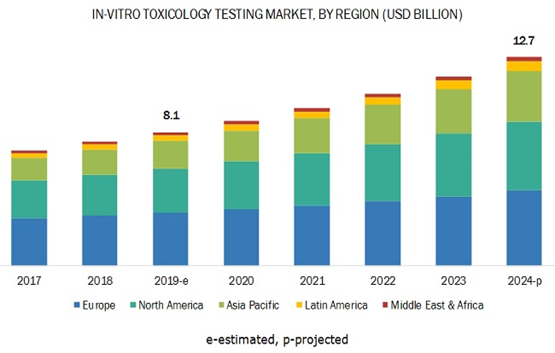
Global Pharmaceutical Retail Market – Analysis by Type (Independent Retailers, Pharmacy Chain), Market Share, By Region, by Country: Opportunities and Forecasts (2018-2023) – By Region (N. America, Europe, APAC, ROW), By Country (U.S., Canada, Germany, UK, India, China, Japan), the global market is projected to display a robust growth represented by a CAGR of 4.94% during 2018 – 2023.
Conference Highlights
- Toxicology
- Pharmacology
- Medical Toxicology
- Genetic Toxicology
- Neuro Toxicology
- Clinical Toxicology
- Paediatric Toxicology
- Biomedical Toxicology
- Inhalation Toxicology
- Toxicology Methods and Mechanisms
- Excitotoxicity
- Food Safety and Environmental Toxicity
- Toxicology Applications
- Toxicity Testing
- Toxicology and Risk Assessment
- Forensic Toxicology
- Clinical Pharmacology
- Advances in Pharmacology
- Analytical Toxicology
- Pharmacological Testing
- Recent Advances in Pharmacology and Toxicology
- Toxicology issues related to covid -19
- Organ Toxicology
- Pharmacy and Pharmaceutical Technology
- Drug discovery and Development
- Biochemical and Molecular Toxicology
To share your views and research, please click here to register for the Conference.
To Collaborate Scientific Professionals around the World
| Conference Date | February 15-16, 2023 | ||
| Sponsors & Exhibitors |
|
||
| Speaker Opportunity Closed | |||
| Poster Opportunity Closed | Click Here to View | ||
Useful Links
Special Issues
All accepted abstracts will be published in respective Our International Journals.
Abstracts will be provided with Digital Object Identifier by














